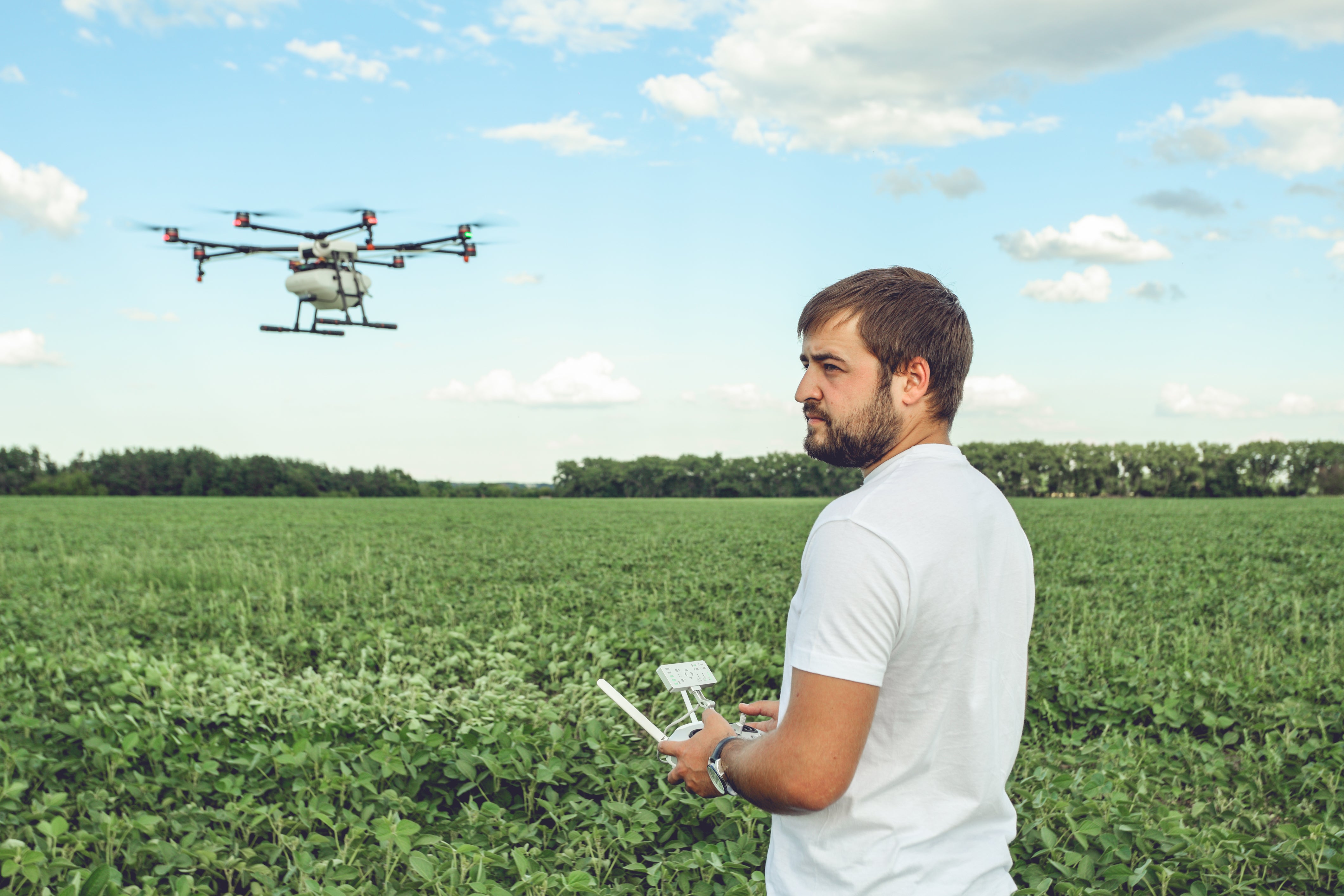Technology investors are discovering a new and largely untapped market: farmers in heartland America eager to fly drones, employ robots and crunch big data to boost their business.
In 2017, tech startups in the agriculture sphere raised $670 million to develop software management, big data analytics, automated equipment and other cutting-edge tools that help farmers grow crops with scientific precision, AgFunder reported. Agriculture is one of the last major sectors to experience the digital revolution and it’s a market ripe for growth.
New technology allows farmers to manage their fields down to the square foot – tracking plant health, soil moisture and estimated profit in real-time. That requires advanced software, sensors and state-of-the-art imaging technology.

Precision agriculture could account for 80 percent of civilian drone use by 2020.
To meet such needs, investors raised more money for ag tech startups in 2017 than during the previous two years combined.
Digitized farming the next big thing
Satellite and machine learning technologies help farmers better manage the productivity and efficiency of their operations while reducing their environmental footprint.
Startup FarmShot turns satellite data into high-resolution images that farmers can use to monitor crop health and pinpoint fertilizer, water and pest management needs. The value proposition is clear; FarmShot was recently snapped up by Syngenta Ventures, the most active venture capitalist in the farm tech space last year.
John Deere is also making big acquisitions as it expands its precision agriculture offerings. Last year, the tractor giant acquired startup Blue River Technology for $305 million.
Blue River uses machine learning, computer vision and robotics to optimize farm inputs. With this technology, sprayers and other farm equipment can predict and apply the exact amount of fertilizer and herbicides down to individual plants.
If on-farm machine learning and satellite imaging come to scale, the improvements to agriculture’s climate and water impacts would be tremendous.
[Tweet “Investment in ag tech is surging. Why that’s good news for farmers and the environment, via @davidfestahttps://www.edf.org/Efh”]
Farm management software soon a $1.6 billion market
While it grabs fewer headlines than satellites and machine learning, farm management software is just as important to farmers, investors and the environment. It facilitates the entire ag tech revolution.
A vast majority of American farmers plan to invest in such software this year – the first and most critical step toward digitizing their operations. This market alone is expected to grow to $1.6 billion by 2025.
Because they make the promises of big data a reality for time-constrained farmers, software startups have high valuations. Granular, for instance, was purchased by DuPont for $300 million.
Decision management software like Granular’s helps growers analyze and act on hundreds of data points about their operations, making farming more economically and environmentally sustainable.
Farmer-run data startup breaks new ground
Ag tech startups may have first piqued investor interest in Silicon Valley, but precision agriculture startups are expanding rapidly around the country.
In Indiana, father-son duo Steve and Chris Fennig – third and fourth-generation corn and soy growers – built MyFarms. Their ag data solutions startup makes it easier for farmers, ag retailers and consumer-facing companies to integrate, analyze and act on sustainability information.
The Fennigs represent a new crop of farmers who will adopt and even develop new technology to meet business and environmental needs.
Expect to see more of that in coming years. There’s a brand new ag world out there, and we can only imagine what comes next.
This post originally appeared on EDF Voices.









